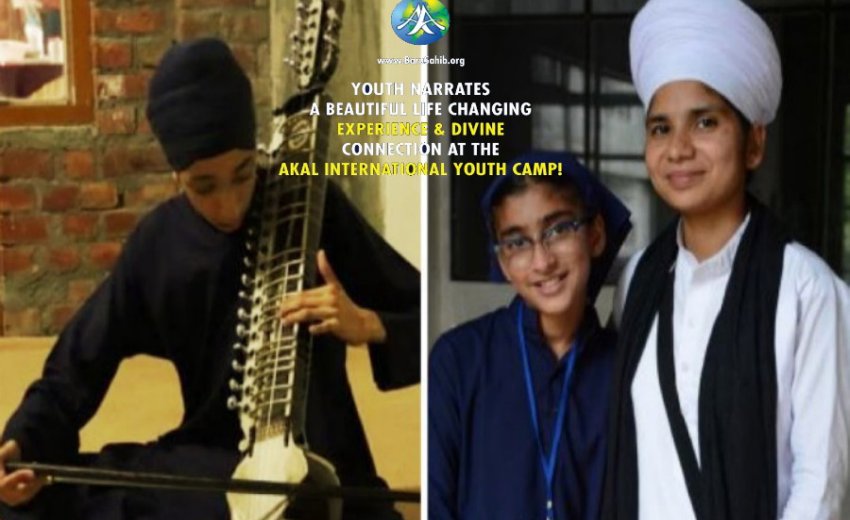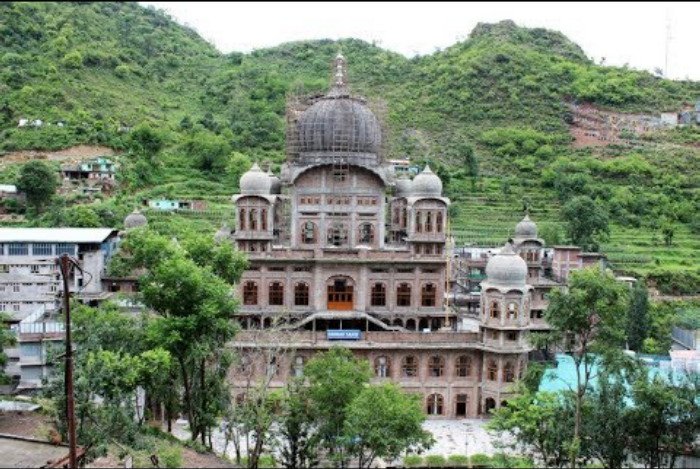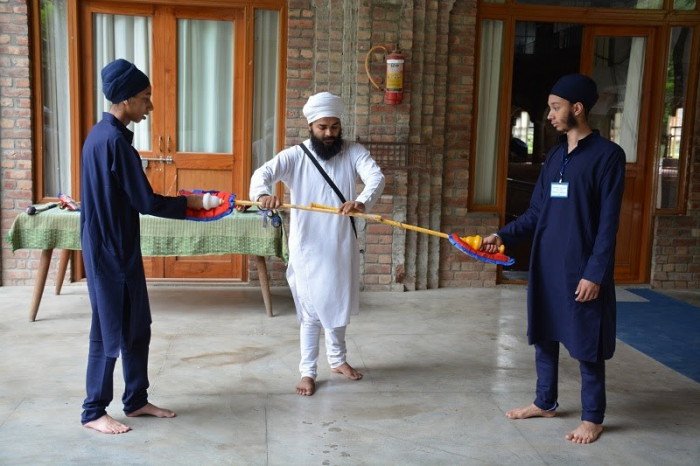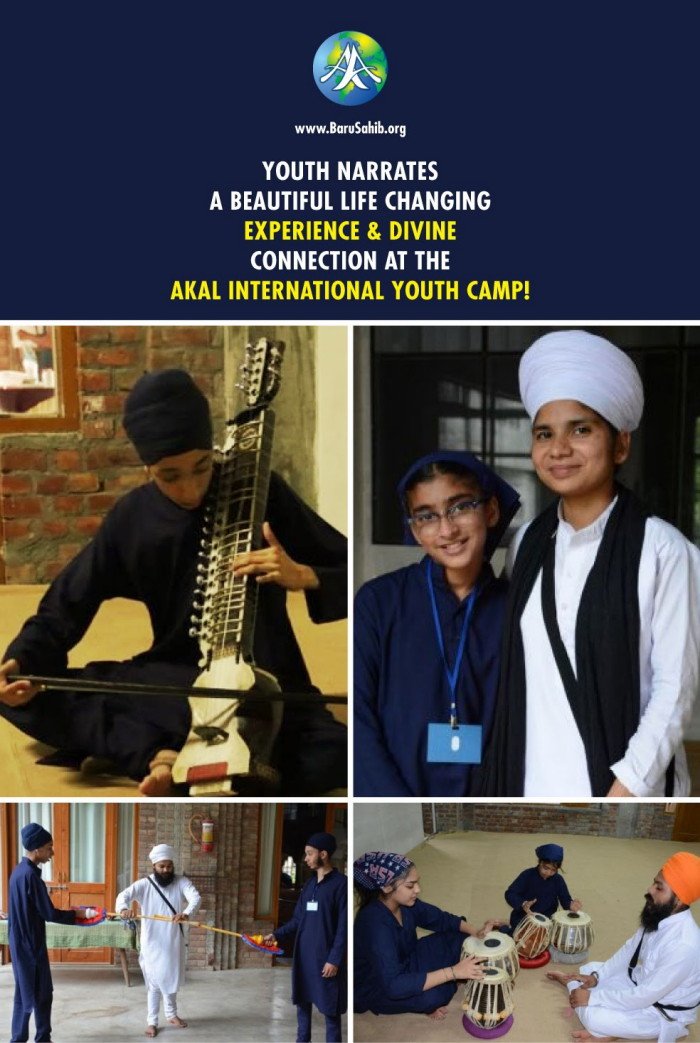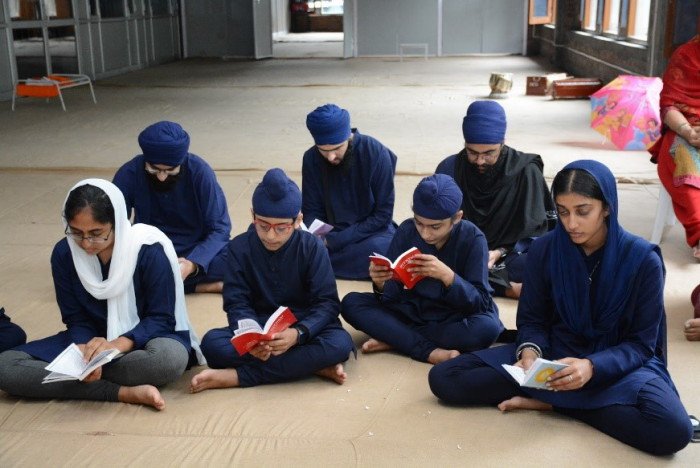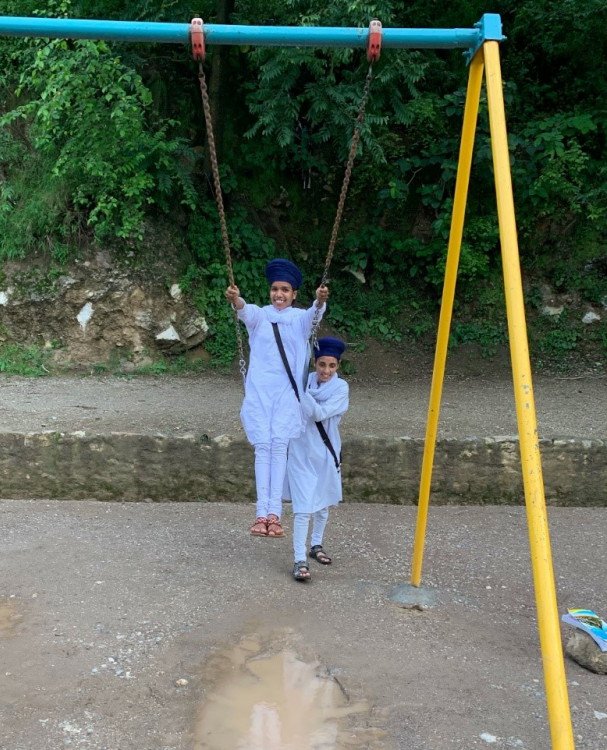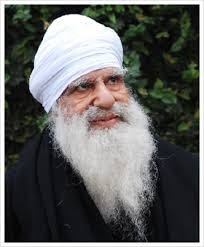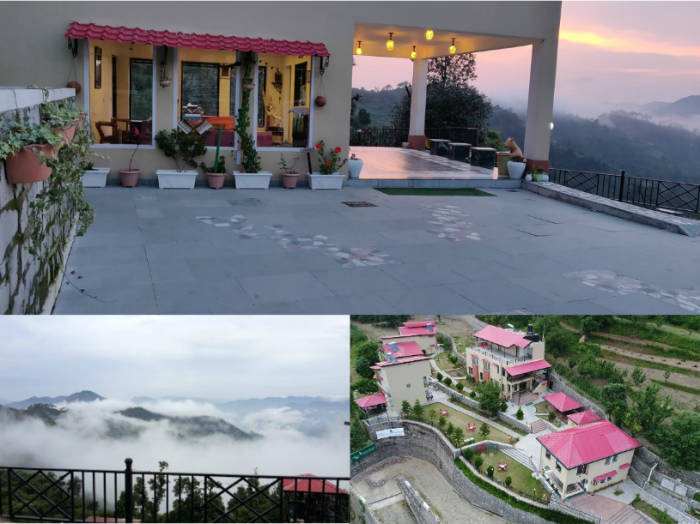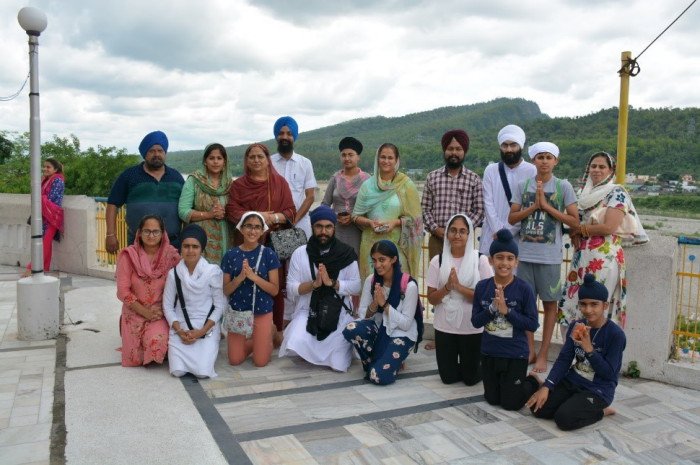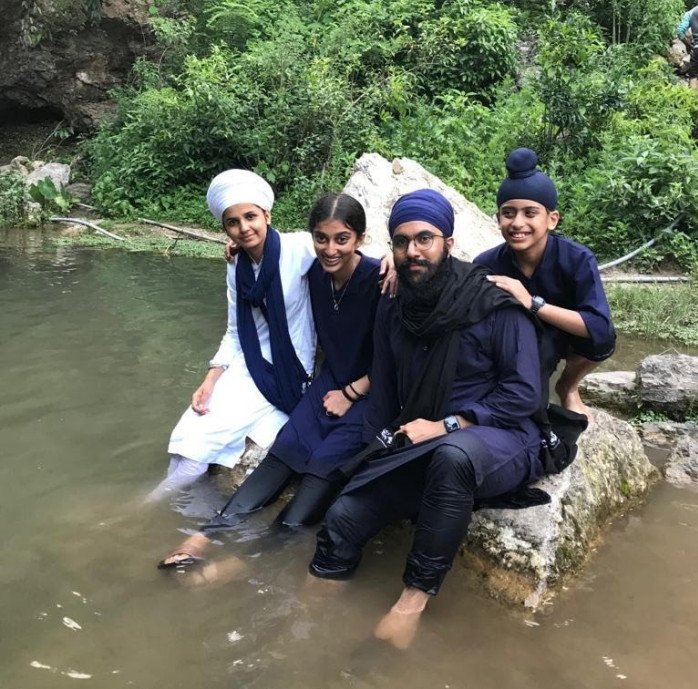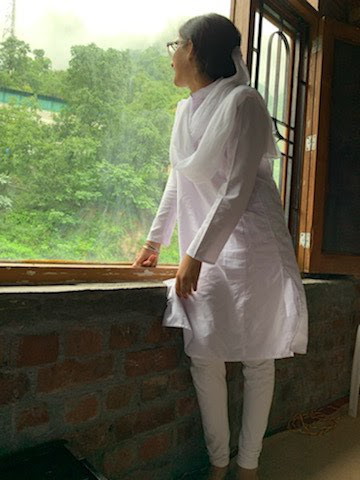How a Sikhi Camp Spiritually Transformed an 11 Year Old
A normal 11 year old sikh girl's life changing trip to Baru Sahib Akal Camp.
If you are reading this you are probably a parent looking for a Sikhi camp for your child. You may have also heard of Baru Sahib through advertisements which have two universities, 130 schools, and a hospital. You probably didn’t know that Baru Sahib hosts an Akal International Youth Camp for Sikh youth from around the world during the summer. For the last 2 year this camp has always held a special place in my heart, and I bet it will be the same for your kids too. Read on to experience a day in the life in Baru Sahib Akal Camp!
Daily Routine
My day would start with going to nitnem in the mornings with the other campers. We would go early in the morning and do paat of panj (5) banis. At this time I was usually really sleepy, because it was early in the morning, but I got used to it over time. I liked nitnem in the mornings, because it was so relaxing. The birds came through the open windows and sat around and chirped. The atmosphere was very serene and sedate. Nitnem would be something to look forward to when you come to Baru Sahib!
Next we took a morning walk to our breakfast building. Here I sat with my camp friend group: Balwinder Singh from Germany (Bali Veerji), Harman Singh and Kerndeep Singh from USA (Harman Veerji and Karan Veerji), Aransh and Sabir Singh from Bahrain, and my sister Sahib Kaur. For breakfast we would have toast and would make drawings on them with nutella and goof around until classes started.
Our first class was santhya. In santhya we learned how to read and pronounce gurbani while simultaneously understanding the meaning. My teacher and I would enjoy go diving deep into the complex meanings of Sukhmani Sahib.
After santhya we would have kirtan class. This class was held on the third floor of the main Baru Sahib Gurdwara Sahib, Darbar Sahib. My teacher and I would always sit next to an open window of the third floor of the Gurdwara and enjoy the cool fresh morning air, with the birds chirping in the distance, and a mango tree just meeting the window. I learned many beautiful shabads in melodious raags. Before we started on a new shabad we would go over the meaning and definitions of the shabad: so everytime I sung the shabad, I would keep Guru’s teachings in my mind. One shabad I learned is in the beautiful Raag of (essence) Ramkali, ‘prani param purakh pag lago’ shabad by Guru Gobind Singh Sahib ji. Another one was the introduction to Rehraas Sahib, which I played on the harmonium every evening during Rehraas Sahib.
My next class was sikh history in which we explored the gurus and their teachings. We learned about all the sacrifices and shahidiyan in Sikh History. The teachers also taught us how to treat the Guru Granth Sahib ji with respect. Not only that, we also dug into grammar and muharni to understand the pronunciation. This is how I learned to read and take hukam in the Guru Granth Sahib ji.
After a refreshment of fruits and juice in the airy snack lounge we headed to gatka (Sikh martial arts). Gatka was by far my most favorite class at camp, because I love using the chakkar. Either I would spend the whole class in an intense sword fight with my friend Heer Kaur or I would be learning new tricks on the chakkar from the gatka teacher. Gatka was definitely one of the highlights of my trip to Baru Sahib. Whenever I was practicing under the canopy of trees, standing right next to a fortress of a gurudwara, I felt like the daughter of Guru Gobind Singh ji. The name Kaur empowers me since that day.
Our next class was punjabi. In this class we learned punjabi writing and reading. If you got through the first level book you could move on to the next level. I practiced reading and writing stories in punjabi. We worked on handwriting, vocabulary and grammar. Ever since then people have been noticing and telling me how my punjabi, and handwriting has improved drastically.
Next we would take a short walk to our cafeteria. We followed the delicious scent of food cooking in the kitchen. We were greeted by the mouth-watering aroma of pizza, french fries, and maggi noodles. Everytime we came they would ask us what we wanted for our next meal. You will never have to worry about the food. Baru Sahib has the best food you could imagine!
After lunch we would have rest time. This was one of my favorite times of the day, because all the parents would be resting in their rooms, and the kids were hanging out outside on the terrace bonding, talking about Sikhi, or having a jam session practicing kirtan together. Our camp premises was on the third floor of the gurudwara with a super large terrace with manjas. This was our favorite place to hangout, and it had a wonderful view of the valley. From chasing monkeys to laughing at the daily punjabi newspaper my favorite memory was when I was jamming with my fellow camp friends. When we were sitting outside talking on the manja while looking at the forest and we heard this beautiful voice singing. It seemed as if someone was practicing kirtan. Usually this time of the day is super quiet, because everybody is resting. We went inside and followed the sound. We found Raj didi (camp head teacher) playing her sitar. We quietly circled around her and we picked up the instruments laying around such as tabla, harmonium and dilruba and we joined in. This was one of the happiest moments in my life.
After we were greeted with the signature smell of samosas baking. We knew it was snack time. Just as we got up the snack bell rang, and we raced to the snack lounge. We sat for 20 minutes talking to each other and feasting on the warm delicious samosas. After that we had our next class: Spoken Punjabi.
But the fun isn’t over yet. Spoken punjabi is the class I look forward to throughout. Me and my teacher would walk around the gurudwara talking the whole time in punjabi. This is how my punjabi improved. No matter how bad my punjabi is, we talked the whole time. With my teachers' weak english, and my bad punjabi. We would teach each other new words, and just talk our hearts out. I would tell her my problems daily, and she would tell me about her amazing life in Baru Sahib, and make me jealous. This class really improved my punjabi. Now it is noticeably better, and I can carry out a full conversation in punjabi whether I am in India talking to my grandparents or at home.
My next class was tabla. In this class I learned taals, and how to keep rhythm with shabad. After only three weeks of playing I learned how to play with a shabad! This class sparked my passion, and I still am learning tabla here in the U.S.
After class we would have Rehraas Sahib and kirtan for 30 minutes. Rehraas Sahib was played on harmonium in a beautiful tune sung by our teachers, after we would present shabads we learned during kirtan class. Thereafter, we would take a hike up the hill to the top where there is a park, sports field, and badminton court. This was our sports time. This place holds some of my best memories. We would hike up the hill together, and come to the top. Which is the most rewarding part. You could see the whole Baru Sahib from the top; all the forests, the gurudwara, all the schools, and the hospital. Once we reached the top we would take a walk around the park together talking, and then we would split up. Some people would go have a personal walk with their teachers, others would play in the park. I really enjoyed talking with my teacher and all the others on the swings. They were like sisters to all of us. Sometimes we interacted with the locals and played volleyball with them. Sports was my most fun time, because we would bond with the fellow campers. For example, I got to know Balwinder veerji. He was like my big brother, and he still keeps in touch.
After sports times we would meet the erudite Baba Iqbal Singh Ji. We would sit for 20 minutes listening to stories and asking religious questions. After meeting babaji we ate dinner and went to our sada virsa class. Even though the class was targeted for older kids class it intrigued me, so I always participated with gusto and enthusiasm. Campers asked deep questions, and discussed controversial topics. Even though I was infamous for asking questions, I always left the class satisfied with a clear answer from the highly educated professors.
After sada virsa we would have about 30 minutes to socialize. We would go on nightwalks sharing deep sakhis, while the adults sat and talked on the camp manja. After this we would go to our rooms, shower and go to bed.
Special Days
Every Sunday there was a special trip for the campers.
MIST AND MEADOWS RESORT: Near Baru Sahib we went to a small nature resort called Mist and Meadows with a breathtaking mountain view. Campers enjoyed the crisp weather, fruit picking, and go on mountain treks. We would eat a meal of typical Himachali food and Indian fast food consisting of gol gappa, naan, shahi paneer, ice cream, and honey chili potato. We would enjoy the company of our fellow campers and hang around the beautiful orchards.
GURUDWARA PAONTA SAHIB: We visited Gurudwara Paonta Sahib on the banks of the river Yamuna. This is where Guru Gobind Singh ji wrote Chopai Sahib. After touring the Gurudwara we shopped for Sikhi Items such as malas and karas. Before heading back to baru Sahib we stayed at another resort for food and rest.
WATER FALL: We got to visit a beautiful waterfall about 15 minutes from Baru Sahib. Campers got to walk around in the cold refreshing water and socializing with the others. Afterwards, we went for a walk to dry off, and we headed back to Baru Sahib.
Camp Highlights
Since we spent 3 weeks at camp, this is the perfect amount of days to learn a new instrument, develop language skills and adopt a new habit. Some more things to keep in mind:
- Akal Camp is a non-judgemental, learning environment.
- Everybody is hospitable and helpful.
- Develop lifelong friendships with other campers.
- Camp is a peaceful and perfect environment for people who want to connect with the Guru.
- Everybody is flexible with medical and emotional needs
- Dedicated and educated staff.
- Suitable for all skill levels, ranging from newbies and advanced students.
- Great amenities, meticulously clean, and environmentally friendly.
Baru Sahib has changed my whole spiritual outlook in life, so it is my duty and seva to share my experience with you as a camper. Please give your child the gift of Gian, and make meaningful relationships by attending Akal International Youth Camp!
Due to the current COVID-19 corona outbreak we are not able to host camp at Baru Sahib this year, but we are holding a virtual camp in the months of July and August. The classes we offer online are learning Gurmukhi and Sikh History. Anyone interested or has a question can email me at [email protected]
During these trying times Honorable Baba Iqbal Singh ji and his students of Akal Academy have intensified their Naam Simran for Sarbat da Bhalla.
For more information on the camp please visit www.aiyc.in. Follow Baru Sahib Social Media for updates:
Facebook - @BaruSahibHP @AkalAcademygroupofschools
Instagram - @barusahib
About the Author
Kush Kaur is now a thirteen year old in 8th grade. She lives in Texas with her family, and enjoys reading, playing tabla, and going to Sikhi camps!

